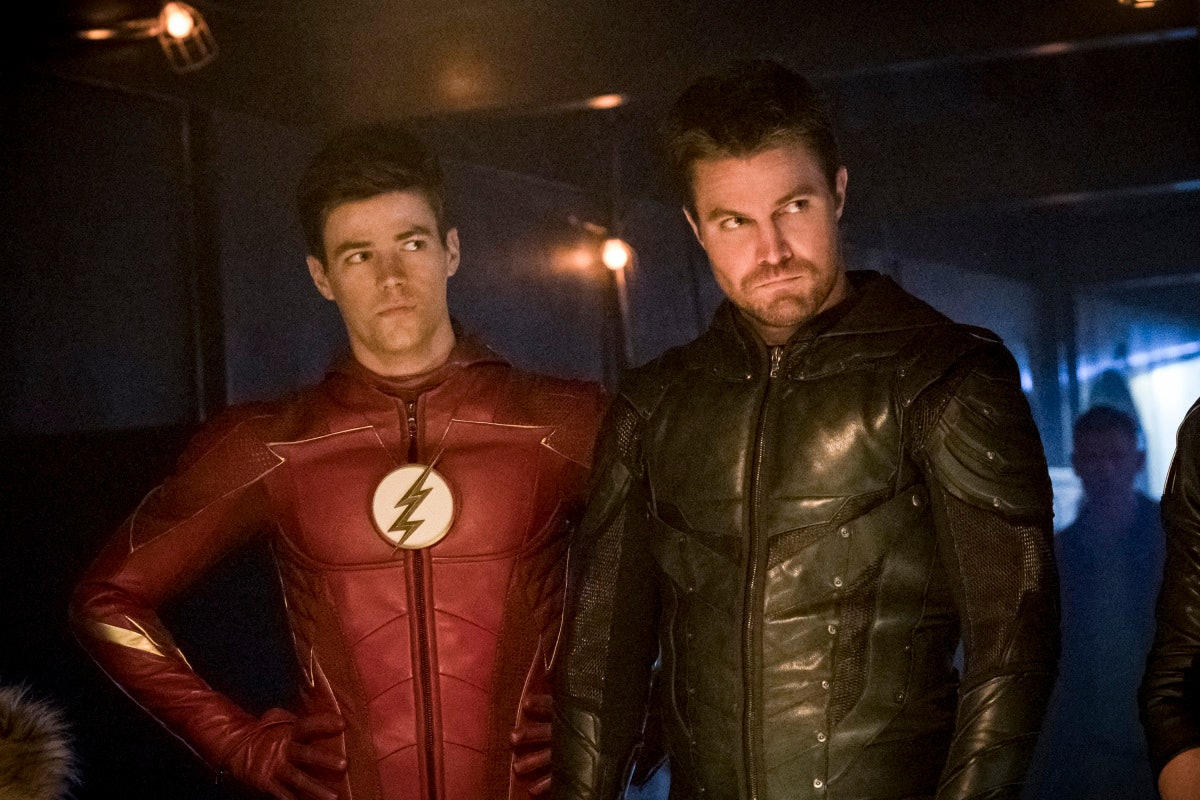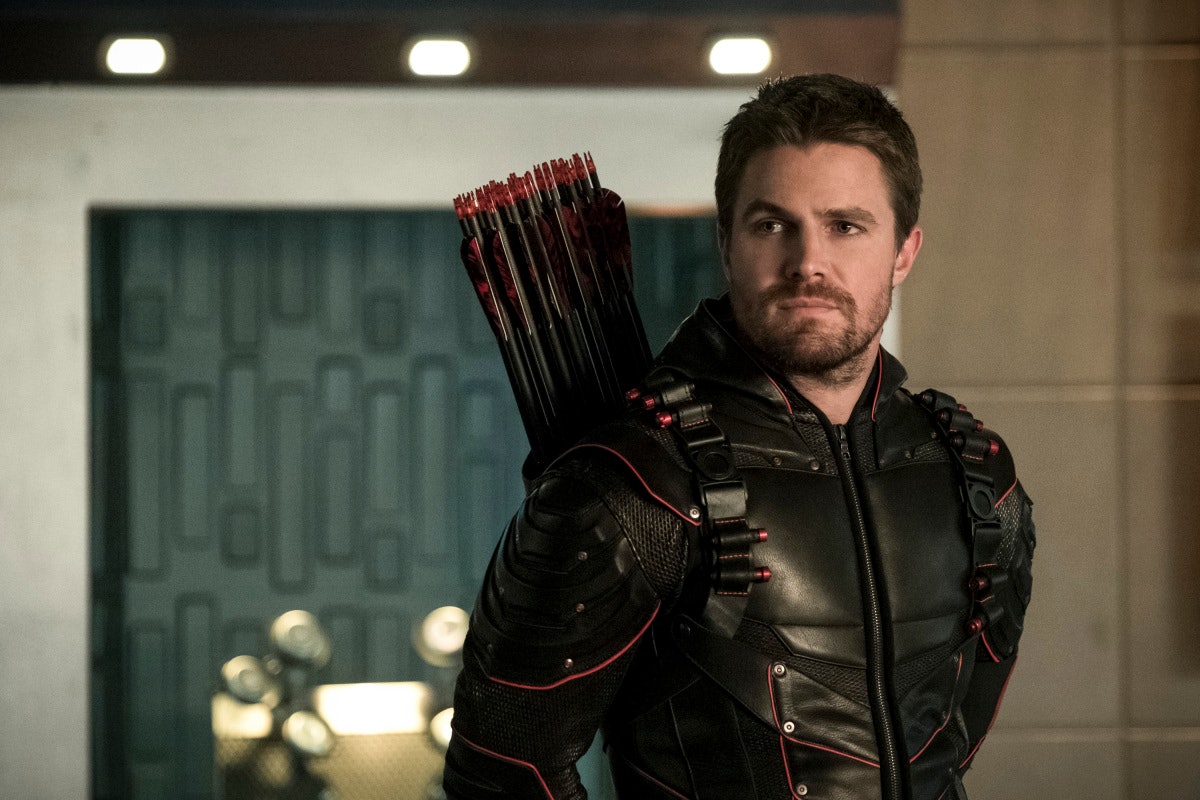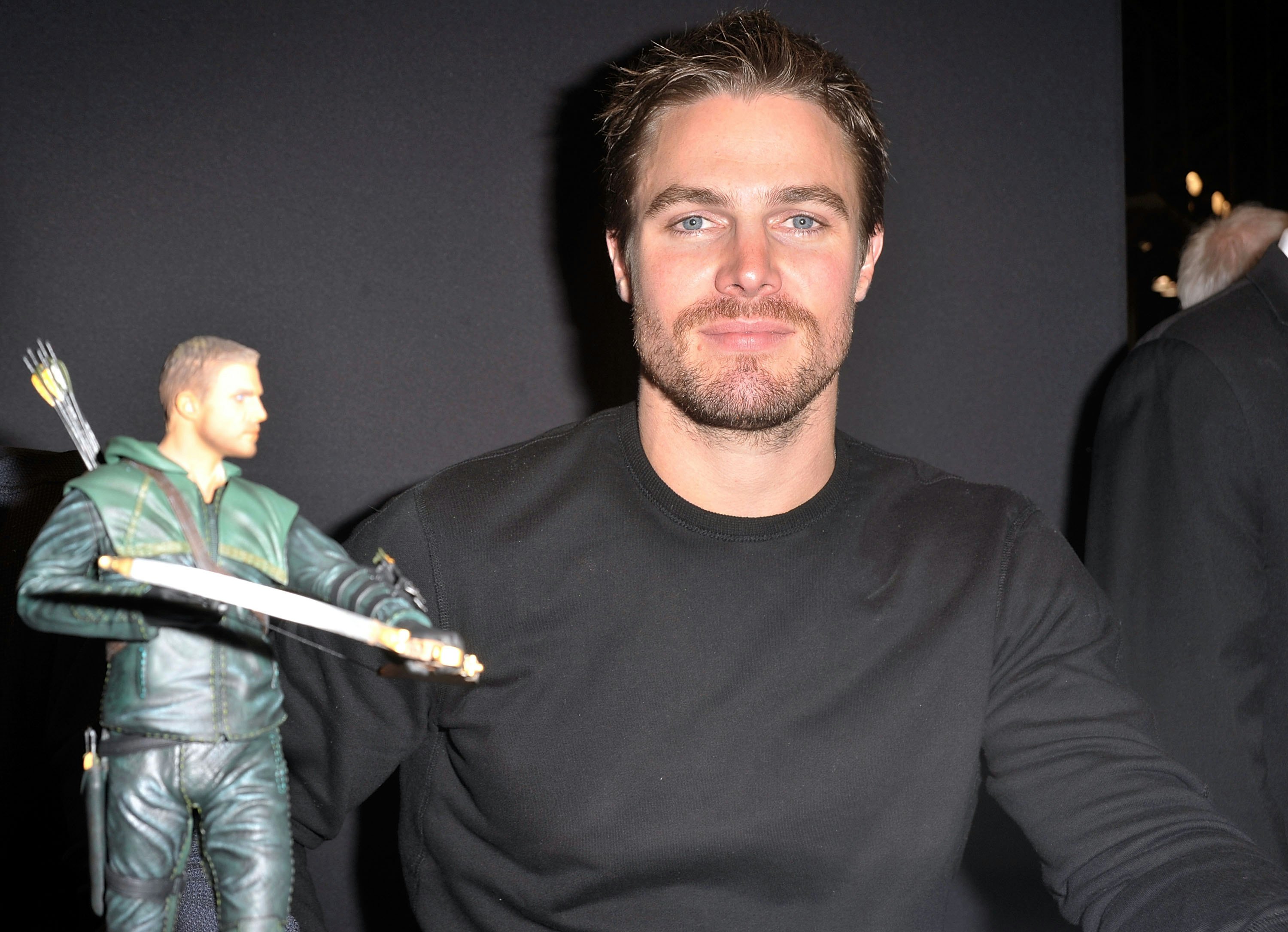
Over 10 years ago, superhero TV evolved with the premiere of Arrow and the subsequent launch of the “Arrowverse” franchise on the CW. Now, the Arrowverse will end with The Flash Season 9 finale, and answer one of its biggest remaining questions... kind of.
On January 4, Stephen Amell announced he’ll return to play Oliver Queen, aka Green Arrow, for the first time since Arrow ended in 2020. On Instagram, Amell shared a photo of himself and The Flash star Grant Gustin with the caption “When Barry calls... Oliver answers...”
In later updates, Amell dismissed questions about the nature of his return.
“Why? How? Doesn’t matter. Greg Berlanti called me up and he said, ‘The Flash is ending, would you like to—’ and I said, ‘Yes. You don’t even have to finish your sentence.’ I have always, always loved coming as Oliver Queen, Green Arrow, Spectre. A Nazi. The Flash. You name it. To The Flash. I love the cast. I love the crew. Don’t ask me anymore f***ing questions about it. Just tune in.”

There are questions, however. Amell’s starring role of Oliver Queen — a billionaire playboy turned archery vigilante — died in the 2019/2020 crossover event “Crisis on Infinite Earths,” one of the biggest live-action DC crossovers ever put to screen.
The end of the series saw his allies uphold his legacy in their own ways, while Oliver’s true love, Felicity (Emily Bett Rickards), seeks the Monitor (LaMonica Garrett) to help her reunite with Oliver in some alternate dimension. Or virtual reality, or possibly heaven. No one is sure. Arrow ends on an ambiguous parting shot that leaves it to you to interpret how the two characters end up happy together despite Oliver’s death.
The Arrowverse leans hard into the multiverse, which leaves the door open for Amell to play a different Oliver than fans knew for all eight seasons of Arrow. (Amell has already played other versions of Oliver, so there’s precedent for dipping into the multiverse again.) There’s also time travel, another storytelling concept The Flash specializes in. It’s plausible that Barry reunites with Oliver by plucking him from a point in the timeline prior to his death. And let’s not rule out the simple matter of dream sequences, in which even “dead” characters speak again when someone like Barry enters a coma-like state.
But as Amell said, it doesn’t really matter. Oliver’s back. Celebrating that fact is less about Oliver as a character and more about ensuring the Arrowverse gets the ending it deserves.

The Arrowverse is collapsing amid a sale of The CW to Nexstar and Warner Bros. Discovery consolidating its DC franchise into one umbrella under DC Studios. While some shows like Supergirl and Black Lightning formally ended, others, like Batwoman and Legends of Tomorrow, were canceled before getting to tie up lingering stories.
It’s been a slow, bitter crawl to the end for a once-dominant force in geek media. The Arrowverse defined an era of superhero television, one that welcomed new fans and encouraged them to read up on the comics. It’s a stretch to say that without the Arrowverse there would be no Marvel or DC shows on Disney+ and HBO Max, but the Arrowverse was once the superhero TV universe to tune into. Now that it’s coming to an end, it simply feels appropriate that the character who started it all will be the one to hit the lights on his way out.
Season 9 of The Flash debuts February 8 on The CW.




.jpg?w=600)


